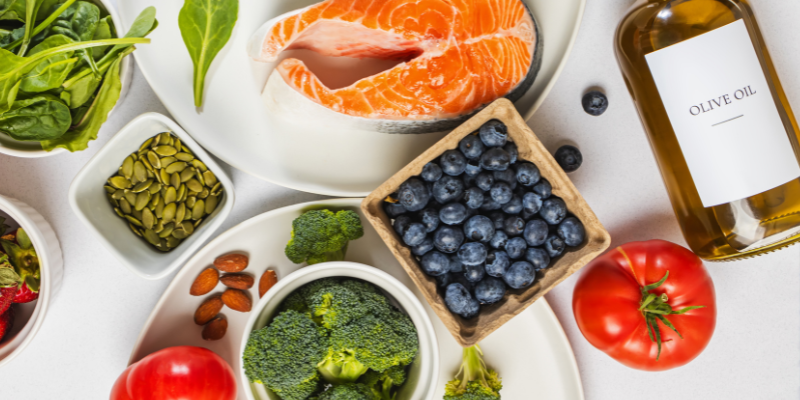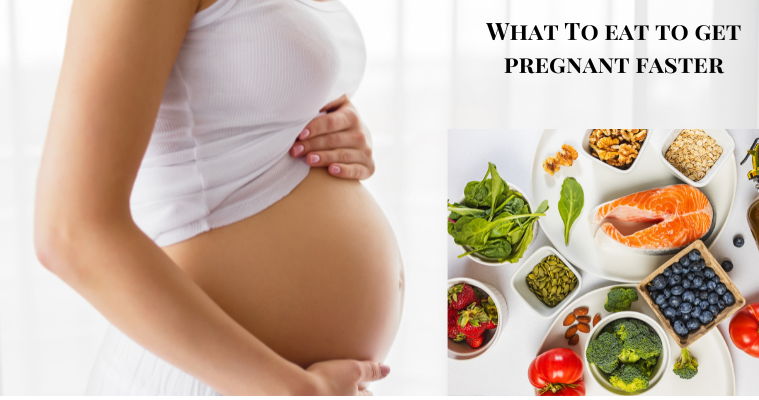Food For Fertility: What To Eat To Get Pregnant Faster
For couples trying to conceive, the journey towards parenthood can sometimes be fraught with challenges. While factors such as timing, health conditions, and lifestyle choices play crucial roles, diet also plays a significant part in optimizing fertility. Research suggests that certain foods can support reproductive health and increase the likelihood of conception. If you’re hoping to get pregnant faster, paying attention to what you eat could make a meaningful difference. Here’s a comprehensive guide on what to include in your diet to boost fertility.

Nutrient-Rich Food For Fertility
Nutrient-rich foods provide essential vitamins and minerals necessary for reproductive health. Focus on incorporating the following into your diet:
- Folate Fertility Link: Found in leafy greens, citrus fruits, and fortified grains, folate aids in preventing neural tube defects in the fetus.
- Iron: Foods like lean red meat, poultry, beans, and fortified cereals supply iron crucial for healthy ovulation and fetal development.
- Omega-3 fatty acids: Sources include fatty fish like salmon, walnuts, and flaxseeds, which support hormonal balance and improve egg quality.
- What Antioxidants To Eat For Fertility: Berries, nuts, seeds, and vegetables are rich in antioxidants like vitamin C, E, and beta-carotene, which help protect eggs and sperm from damage caused by free radicals.Healthy Fats To Increase Fertility: Incorporating healthy fats into your diet can positively influence fertility. Opt for monounsaturated and polyunsaturated fats found in:
- Avocados
- Olive oil
- Nuts and seeds
- Fatty fish These fats support hormone production and regulate insulin levels, both critical factors for fertility.
Protein To Increase Chances of Pregnancy
Including adequate protein in your diet is essential for reproductive health. Opt for lean protein sources such as:
- Poultry
- Fish
- Beans and lentils
- Nuts and seeds Protein provides the building blocks for hormones and supports overall reproductive function.
Whole Grains Impact on Fertility
Swapping refined grains for whole grains can have a positive impact on fertility. Whole grains such as:
- Brown rice
- Quinoa
- Whole wheat bread
- Oats Provide fiber and essential nutrients, helping regulate insulin levels and reducing the risk of ovulatory infertility.
Does Dairy Increase Fertility?
High-quality dairy products can contribute to improved fertility outcomes. Opt for:
- Greek yogurt
- Cheese
- Milk These are rich in calcium and vitamin D, which support reproductive health and may enhance fertility.
How Hydration Impacts Fertility
Staying hydrated is crucial for overall health and fertility. Aim to drink plenty of water throughout the day, as proper hydration helps maintain cervical mucus consistency, facilitating sperm movement. If you struggle with drinking enough water, try adding a sugar free electrolyte to your water for an addd boost of hydration from key vitamins and minerals that will also support your body.
What Foods To Avoid When Trying To Get Pregnant
While focusing on fertility-boosting foods, it’s equally important to limit certain substances that may hinder conception:
- Caffeine: Excessive caffeine consumption has been linked to fertility issues, so consider reducing intake from sources like coffee, tea, and soda.
- Alcohol: Heavy alcohol consumption can disrupt hormone levels and impair fertility, so it’s advisable to limit alcohol intake when trying to conceive.
- Processed Foods: Highly processed foods often contain unhealthy fats, added sugars, and artificial additives, which can negatively impact reproductive health. Opt for whole, unprocessed foods whenever possible.
While diet alone cannot guarantee conception, adopting a fertility-friendly eating plan can enhance your chances of getting pregnant faster. By incorporating nutrient-rich foods, healthy fats, lean proteins, whole grains, and dairy products into your diet while limiting substances that may hinder fertility, you’re supporting your reproductive health and optimizing your body for conception. Remember, alongside a nutritious diet, maintaining a healthy lifestyle, managing stress, and seeking medical guidance when needed are also vital steps towards achieving your goal of parenthood.
Published by HOLR Magazine.


